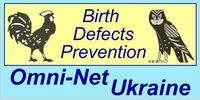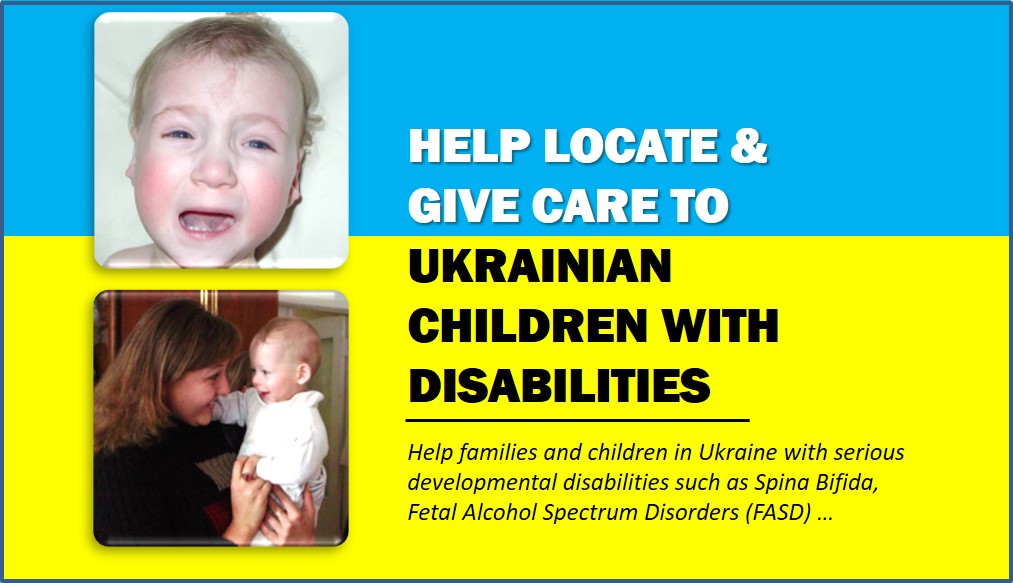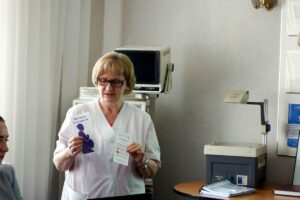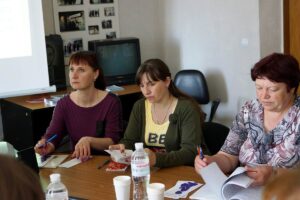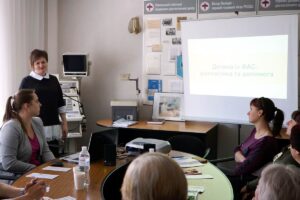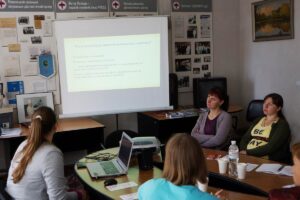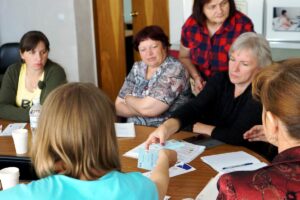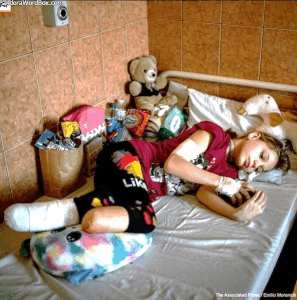On May 21, 2018, the Victor Polishchuk Rivne Regional Clinical Diagnostic Center (RRCDC) hosted a workshop “A child with FAS: Diagnosis and Care” for mathematics teachers of the Rivne region. The aim was to disseminate knowledge about Fetal Alcohol Syndrome (FAS) and ways to help FAS children to study.
Not all children learn the same way: somebody masters information easier, and there are children who are not ready at all for the commonly accepted model of education. Children with FAS may be in the group of such “difficult” students.
The organizers of the workshop included RRCDC, the Department of Natural and Mathematical Sciences and Technologies of the Rivne Regional Institute of Postgraduate Pedagogical Education, the “OMNI-Net for Children” International Charitable Foundation, and the NGO “Rivne OMNI-Center for the Development of Children”.
The participants of the seminar were greeted by Drs. Ihor Shumlyansky, RRCDC Deputy Chief Doctor, and Lyubov Yevtushok, Head of the Regional Medical Genetic Center. It was emphasized that the prevention of birth defects in the region cannot be carried out only with the help of medical programs, since this task is complex and requires joint and coordinated activities of many departments and governmental agencies, public organizations and mass media.
To understand the significance of FAS related problems, the participants of the workshop watched “The Child for Life” video created by the British National Organisation for Foetal Alcohol Syndrome-UK (NOFAS-UK) and dubbed into Ukrainian by the Ukraine Works Ltd (Director Anne Linden).
The RRCDC practical psychologist I. Hranovska familiarized the workshop participants with characteristic manifestations of FAS, in particular with neuro-developmental abnormalities. As a result of these abnormalities, children experience difficulties in mastering the material of a typical educational program. Therefore, FAS children need to be trained using special methods, especially when mastering the mathematical skills. The participants were acquainted with the MILE Interactive Learning Program developed by scientists of the FAS Center at the Emory School of Medicine Marcus Autism Center (Atlanta, Georgia, USA) under the guidance of Claire D. Coles, Julie A. Kable, and Elles Taddeo. Its translation and adaptation in Ukrainian was carried out with facilitation of the “OMNI-Net for Children” International Charitable Foundation, the NGO “Rivne OMNI-Center for the Development of Children”, and the NGO “Khmelnytsky OMNI-Center for the Development of Children”. The program is freely accessible on the IBIS website.
As well, the workshop participants reviewed the components of the GoFAR Adaptive Skills Development Program and the special FAR Interactive Training Strategy, also sponsored by the specialists of the FAS Center at the Emory School of Medicine Marcus Autism Center (Atlanta, Georgia, USA). The translation into Ukrainian is available on the IBIS website.
During the discussion, the issue of the socialization of FAS children and their opportunities to adapt to the adult life aroused a major resonance. The participants of the workshop exchanged views on the need to disseminate the experience of using specialized correctional programs for such children and to spread knowledge about the harm of alcohol specifically among school students.
